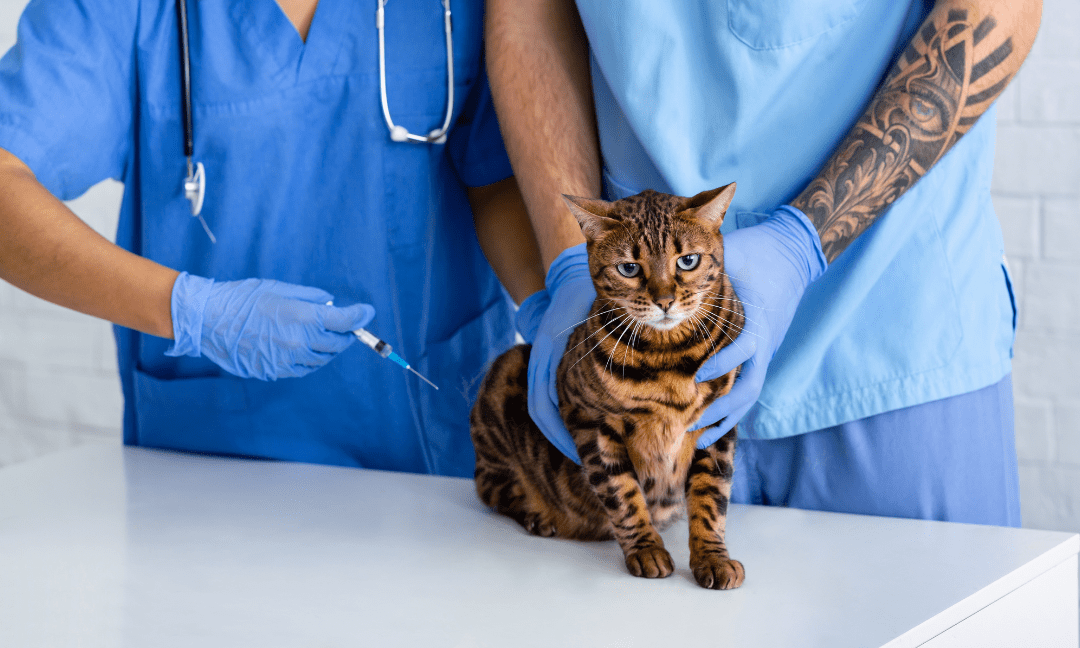Do you know which pet vaccinations your furry friend needs? Trying to keep track of all the different immunisations recommended for cats and dogs can be confusing, but it’s vital to ensure your pet is up-to-date on their shots.
How Do Pet Vaccinations Work?
Vaccines help provide pets with immunity from a range of infectious diseases. They contain an agent similar to the microorganism causing disease. Once injected into the animal’s body, this foreign substance stimulates their immune system’s defense mechanism, allowing them to fight off the same disease if they get exposed to it in the future.
Reasons to Get Your Pets Vaccinated
The importance of pet vaccines cannot be overstated. In recent years, however, the term “vaccine hesitancy” has been coined due to a growing number of people having qualms about the necessity of pet vaccines. Although generally considered safe, some pet parents still worry about the side effects. Furthermore, vaccine hesitancy is also rising partly due to a lot of misinformation available online. However, as a responsible pet parent, it’s important to consider the countless benefits of pet vaccines. Here are a few of them:
Prevent your pet from contracting certain diseases
Pets are vulnerable to many diseases, some even life threatening, and vaccinations help prepare their immunity’s defence mechanism in case they get exposed to the disease in the future.
Keep other pets, you and your family safe
Many infectious diseases are zoonotic, meaning they can be transmitted between animals and humans. Unless your pets are vaccinated, your pet, other animals, and you and your family are at risk of contracting these diseases.
Compliance with the law or private establishment requirements
When travelling outside Australia, some countries require up to date pet vaccination. Similarly, Australia’s strong biosecurity laws also require pets to have current vaccinations when travelling back to the country. Most boarding kennels and catteries also require pets to have up to date vaccination before they can be accepted into their facilities.
Cost Effective
Although having your pets vaccinated can be expensive, it may cost more if your pet ends up severely ill after contracting a disease that may have been avoided if only they had the necessary shots. Imagine paying for medicines, boarding expenses, medical tests, and vet costs. Most of all, no pet parent would not want to see their pets sick.
Which Pet Vaccinations are Essential?
Pet vaccines are categorised into Core and Non-Core.
Dog Core Vaccines:
- Canine distemper virus
- Canine adenovirus
- Canine parvovirus
***These vaccines can be grouped together in one injection called a ‘C3’ vaccine.
Dog Non-Core Vaccines:
- Parainfluenza virus
- Bordetella bronchiseptica
- Leptospira interrogans
Cat Core Vaccines:
- Feline parvovirus
- Feline calicivirus
- Feline herpesvirus
Cat Non-Core Vaccines:
- Feline immunodeficiency virus
- Feline leukaemia virus
- Chlamydia felis
- Bordetella bronchiseptica
While it’s advised to have your pets receive both core and non-core shots, they don’t need them all. A consultation with your vet is still necessary to help you make the best decision.
Other Questions about Pet Vaccinations
Q: At what age should my pet start vaccination?
A: Not younger than six weeks
Q: How often should I take them for their shots?
A: The age of your pet and the type of vaccine are some factors to consider to determine how often they should go in.
Q: What are the common side effects?
A: The most common side effects usually occur within a few hours after receiving the vaccine. Some examples are weakness, diarrhoea, and loss of appetite. They will go away on their own after a day or two. If it persists after a couple of days, consult your vet immediately.
Your Decision About Pet Vaccinations Can Affect Your Pet’s Life
As a pet parent, it’s your responsibility to do what’s best for your furbaby. Pet vaccinations have been scientifically proven to reduce the chances that animals contract certain diseases. Before making any decisions, it’s always best to speak to your vet about immunisations suitable for your furry friend. They can give you tailored medical advice based on your pet’s individual needs.
Related Articles:
Pet Vaccines You Should Know About
4 Common Health Issues In Dogs: Symptoms, Causes, Treatments
4 Common Health Issues In Cats: Symptoms, Causes, Treatments


